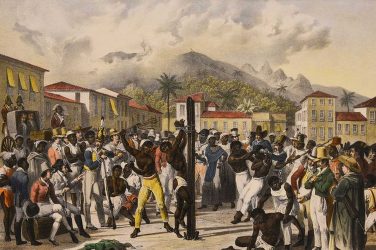
Carrying a backpack, a tent, and speaking English and French, some words of Arabic and a great spirit of adventure, Brazilian Charles Zimmermann spent six months travelling to 13 countries in the Middle East and North Africa. The adventure started in November 2005, in Syria, and ended in May 2006, in Morocco.
The adventurer’s intention was to travel around the Sahara desert, also visiting large cities and capitals. His dream was to learn about the Muslim world, to see the faces, feel the smells and flavors and to live, for six months, like the civilizations of the regions he visited live.
This was not the first time that Charles took a long journey to different parts of the world. In 2004 he travelled 60,000 kilometers crossing countries like Turkey, Iran, Cambodia, China and India (among others).
This non-conventional tour was transformed into book Nos Confins do Oriente (In The Far East), launched in 2005, which has sold 4,000 copies. This time, the trip to the Arab and African countries is carefully described in Estrada para o Grande Deserto (Road to the Great Desert), which was launched in October and has already sold 1,500 copies.
In his search for the Muslim world, Charles visited not only Arab countries like Syria, Lebanon, Jordan, Egypt and Sudan, but also Ethiopia, Kenya, Ghana and Mali, among others.
“I have always wanted to learn about the Muslim world, a society that is so complex and different from ours,” explained the adventurer.
Still in Brazil, he planned his trip, the destinations and paid attention to the climate, not to get stuck in unbearable temperatures in the desert. Apart from that he counted on luck and improvisation.
“I left Brazil with just my visa into Syria. When I got there I got permission to travel to Lebanon. And from there I went on,” he explained.
“Entering Sudan was a little more complicated. As the country is currently at war, I had to insist at the Brazilian embassy in Egypt. I explained that I could not fly direct because I had no money and needed to go by land. That was the only way they accepted my visa.”
The Brazilian passport opened many doors and simplified the trip. “They associate it to football and music. They are very friendly to Brazilians.”
At some moments he had to change his plans or adapt himself to adverse situations. When he was in Syria, three bombs exploded in Jordan and the frontiers were closed. He had to stay in Damascus for a little longer.
Charles spent, on average, three weeks in each country. In Sudan he couldn’t get to Khartoum due to the civil war that has been going on for 46 years. In the African countries, he saw children starving and working on crops.
In Sudan and in Ethiopia, Charles was followed by children due to his physical appearance – blond, blue-eyed, a typical descendent of Germans and Italians from the southern Brazilian state of Santa Catarina.
What most marked his stay in poor countries like Sudan, Mauritania, Mali and also Morocco was the receptiveness of the people. “They took me to their homes and offered me food, they were very kind,” he recalls.
The truck drivers who gave Charles rides, normally transporting sheep, often took him to their homes. If I did not sleep in the house of the hosts, I put up a tent somewhere nearby and slept. Communication was through body language and facial expressions. “Almost everybody made an effort to understand me. And I made an effort to understand them.”
On the menu, mainly on his stretch through the desert, were large volumes of stew and camel. Tasty? “You end up getting used to it,” he says.
“In Syria and Lebanon the food is not very different from the Arab food we eat in Brazil. It was very good.” When eating and behaving at people’s homes, he always paid great attention not to make mistakes. Among the Muslims, for example, he always entered houses barefoot and ate with his right hand.
Going to the bathroom was no luxury. “Most of the time the bathrooms were simply holes in the ground,” he tells. Only in Marrakech, Morocco, did he stay, for the first time, in a hotel.
“I was always faithful to my proposal of living as did the people of these places: Bedouins, Arabs, Moors, Berbers, Nubians and Phoenicians, among others,” explains Charles. “Studying the cultures and eliminating biases were the main objectives of my trip.”
Professional Traveller
Up to 2003, Charles Zimmermann was a career employee in his city, Jaraguá do Sul, in the interior of Santa Catarina. He started working at WEG, a maker of engines, at the age of 15. He worked in various departments and finally got into foreign trade.
It was the need to communicate with foreigners from all around that kindled his curiosity about other countries. At the age of 30, after working for the company for 15 years, he decided to travel around the world and see different places more closely. He asked to leave and travelled to Asia. Two years later he faced the Arab world.
Nowadays, as well as being a professional traveller, he gives talks about his experiences, mainly at universities. “I speak to journalism and foreign trade students very often. In the academic world, his main focus is on cultural shock, the differences between and curiosities about the places he has visited. When I speak at a company, I generally talk about relationships and the importance of being flexible when travelling to places that are so distant,” he explained.
Charles does not have sponsorship. He makes his trips as cheap as possible, avoiding the need for air travel in the middle of the way. He funds his trips with the money he makes from his books and talks. Now he is getting ready for his longest trip: he is going to travel around the world on two wheels. He intends to leave in March 2007.
The idea is to bicycle from South Africa to Kenya, then up to Yemen, to visit the United Arab Emirates, and to retrace stretches of his trip to Asia, crossing Mongolia, Indonesia and China. From there he will take a train to Moscow and will begin his stretch through Europe.
Finally, he is going to fly to Central America and then will travel down to Venezuela and Brazil. Charles estimates that he should be back in the second half of 2009. Great energy is necessary. As is curiosity to travel the world.
Contact
Site: www.charlespelomundo.com.br
E-mail: charlesautor@gmail.com
Anba – www.anba.com.br



